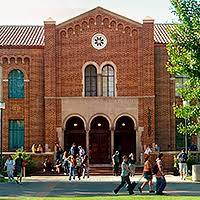High school guidance counselors and parents often encourage students to attend a four year college of university rather than a community college. Community colleges are often seen as an inferior system of education that should be used only as a last resort. However, that view is not always accurate.
Community colleges are two year schools that usually offer students an associate degree. While it is true that, on average, a person with a bachelor degree from a four year college will earn more than a person with an associate degree from a two year college, community college does not prevent a person from finishing a bachelor’s degree in 4 years. In fact, there are many benefits to attending a community college and earning an associate degree that are often overlooked.
1. Save Money
One of the biggest benefits of attending a community college is that you can save a significant amount of money. Tuition is usually much less expensive than even a public 4 year college or university. Also, it is usually possible to live at home rather than in a dorm or rented apartment since there is likely to be a community college nearby. Community college schedules are also structured in way that allows students to work full time and to be full time students. If the class schedule at the local community college does not fit in with your work schedule you can always pursue distance education courses to earn your associate degree and those programs may provide you with even more scheduling flexibility.
2. Make Connections
By staying in the community to attend school, you will likely make contacts in your community. If you want to stay in the area after graduation then this is invaluable. It will allow you to meet local mentors in your field and to have internships at local companies. These personal connections are likely to be a significant asset to you when you begin your job search, even if you decide to pursue a four year degree in another part of the country after you complete your two year associate degree.
3. Flexible Scheduling
Community colleges typically offer lots of nighttime and some weekend classes. If you work full time because you are returning to school after being in the workforce for a while or if you need to work full time this can be a compelling reason to attend a community college. The array of classes that are offered on nights and weekends may allow you to finish your degree faster than at a school without many night and weekend options.
Flexible scheduling is also important for students who are parents so that they can arrange their classes around their family obligations. Many community colleges do have daycare options to allow parents maximum flexibility.
4. Start at a Community College and Transfer to a 4 Year School
There are many benefits to beginning your education at a community college or junior college and then transferring to a 4 year college or university. Not only will the total cost of your education be lower because you saved significant amounts of money during your first two years but you may also have better study habits and a better idea of what you want to do with your life than you did as a high school senior. Further, you will be able to improve your GPA during your first two years at a community college and that might enable you to go to a more prestigious college or university.
5. You Aren’t Ready to Commit
At age 18, when most people graduate from high school, some people are not ready to commit to a college or to a future career path. The options seem endless and it can be hard to decide what to do. For those students, a 4 year college or university is an expensive way to find themselves. They may be better off trying a variety of courses at a community college in order to decide what they want to do.
Very often, community colleges conjure up images of troubled students who could not make it at traditional 4 year colleges or universities. However, that image is outdated, if it was ever true in the first place. Today, community colleges offer many benefits for many students and can be a very positive first step in post high school education.
Read previous article here



